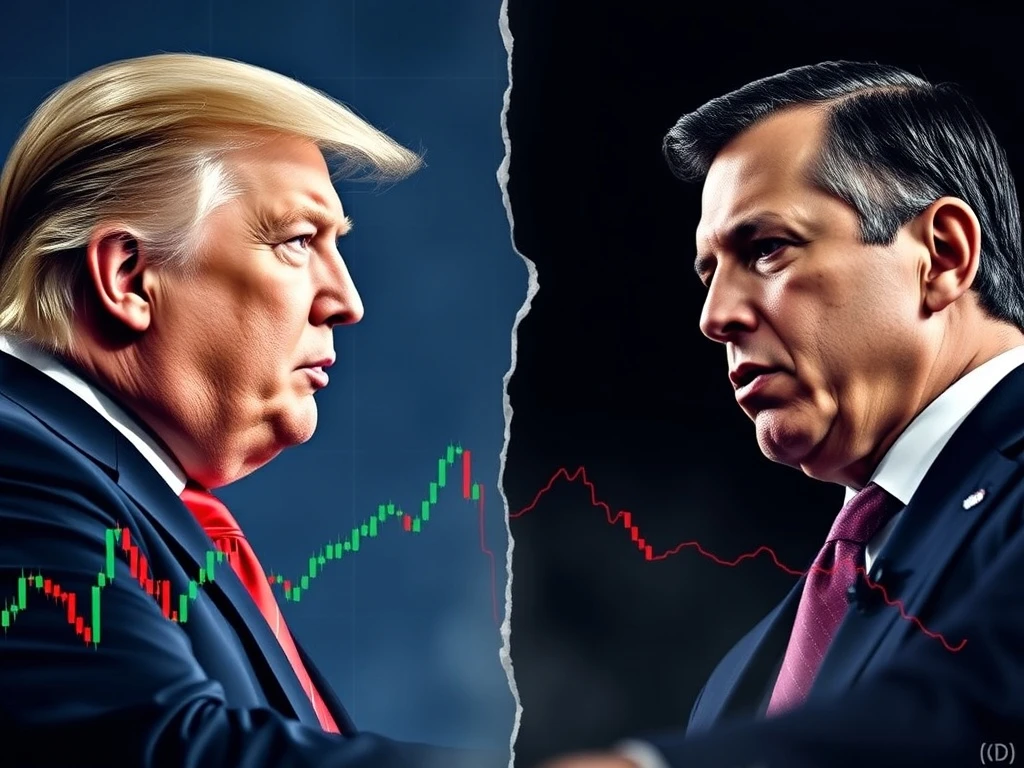Bitcoin News Alert: Trump’s Shock 50% Tariff on Brazil Triggers Market Chaos and Geopolitical Risks

The cryptocurrency world is on high alert as President Trump’s unexpected 50% tariff on Brazilian imports sends shockwaves through global markets. Bitcoin traders are bracing for potential volatility as this dramatic trade policy threatens to reshape economic relationships and create ripple effects across all financial markets.
How Trump’s Brazil Tariff Impacts Bitcoin Markets
The announcement of sweeping 50% tariffs on Brazilian goods has immediately created uncertainty in financial markets. Historical patterns suggest Bitcoin often experiences price swings during trade wars:
- 2018-2019: BTC dropped 40% during peak US-China tensions
- 2020: BTC rallied 300% as trade wars boosted safe-haven demand
- Current BTC price: $118,349.79 (0.34% daily gain)
Geopolitical Tensions Behind the Trade Move
This aggressive tariff policy appears linked to Brazil’s Supreme Court investigations into former President Bolsonaro. Key developments:
| Date | Event | Market Impact |
|---|---|---|
| July 31 | Tariff announcement | BTC volatility increased |
| August 6 | Tariff implementation | Potential major market reaction |
What This Means for Cryptocurrency Investors
Market analysts identify three potential scenarios for Bitcoin:
- Short-term dip: Initial panic could drive prices down
- Mid-term surge: Investors may flock to crypto as hedge
- Long-term stability: If tensions ease, normal patterns resume
Actionable Insights for Crypto Traders
To navigate this volatile period, consider:
- Setting stop-loss orders at key support levels
- Diversifying with stablecoins during uncertainty
- Monitoring agricultural commodity prices as leading indicator
Frequently Asked Questions
Q: How long will the tariff impact crypto markets?
A: Most analysts expect 2-4 weeks of elevated volatility, depending on Brazil’s response.
Q: Should I buy Bitcoin during this dip?
A: Dollar-cost averaging remains the safest strategy during uncertain periods.
Q: Which altcoins might benefit?
A: Privacy coins and stablecoins often see increased demand during geopolitical crises.
Q: How does this compare to previous trade wars?
A: The Brazil tariffs cover more targeted sectors than the China tariffs, potentially creating different market dynamics.









